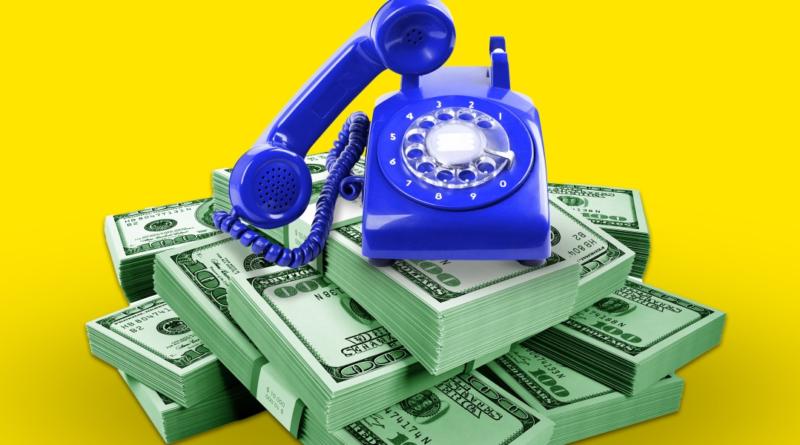Callable CDs offer higher APYs but they come with greater risk
When interest rates are high, you can park your money in a certificate of deposit (CD) or high-yield savings account to earn more money. With CDs, you tie up your money for a fixed amount of time in exchange for regular interest payments that you cash out at the end of the CD’s term.
Many CDs offer a fixed interest rate, so your annual percentage yield (APY) doesn’t vary because of market volatility or changes to the Fed’s benchmark rate. CDs are generally considered low-risk investments, but if you have a callable CD, you might be taking on more risk than expected.
What is a callable CD?
A callable CD is a type of CD that allows banks to terminate a CD before it reaches maturity.
When you open a CD, you deposit a set amount of money for a fixed period of time, which typically ranges from three months to ten years. In return, you’ll earn a fixed APY (unless you have a variable rate CD), with interest compounding on a daily, monthly, or semi-annual basis.
Callable CDs work similarly although there’s one key difference: they carry a call feature, which means banks can terminate a CD before it matures. Banks usually have to wait a period of time before they’re able to call back a CD.
If a bank does call your CD, you get to keep the principal (or the amount you initially invested) and the interest payments you’ve accrued up until it was called. After the CD is called, you won’t get the interest you would have earned had the CD reached maturity.
So why might a bank choose to ‘call’ a CD? Callable CDs are typically ‘called’ when interest rates drop. Let’s say that a bank offers a 3-year CD with a 5% APY. However, one year later, the APY on 3-Year CDs drops to 3%. The bank might ‘call’ your CD because it can issue new CDs with a lower interest rate—which means that you’ll have to reinvest your money somewhere else. Callable CDs offer higher APYs than traditional CDs because of this risk.
You might opt to buy a callable CD if you think interest rates will increase or stay steady in the future, but investors might find it challenging to predict how rates will change in the future.
“It’s very difficult to gauge where rates will be at any point of time from now,” says Scott Sturgeon, founder of Oread Wealth Partners. “People who try to predict this stuff are often incorrect…There are other low-risk assets you can utilize that might be a better fit.”
What is a brokered callable CD?
CDs sold by brokerages are known as brokered CDs. They work like this: Banks issue CDs in bulk and brokerage firms buy those CDs in order to sell them to customers. Some brokered CDs have a call feature, so the bank that initially issued the CD can redeem it before it reaches maturity.
“Since they [brokered CDs] are purchased in a brokerage account, you could have an original issue—where you’re buying it when it is issued—or you could be buying it on a secondary market,” says Peter Salkins, Financial Planner at Integrated Partners.
Brokered CDs typically offer higher APYs and greater liquidity than bank CDs. Unlike bank CDs that require you to pay a penalty fee for early withdrawal, brokered CDs can be sold on the secondary market before they mature. This feature can be useful if you think you’ll tap your money before the CD reaches maturity and want to avoid paying an early withdrawal penalty.
However, depending on if interest rates have risen or fallen since you purchased the CD, you could make a profit or loss when you sell a brokered CD on the secondary market.
Brokered CDs are usually FDIC-insured, but you’ll have to figure out which bank issued the CD to guarantee that it is insured. The SEC also recommends that investors look into the deposit broker’s background to ensure they are reputable.
Pros and cons of callable CDs
Before you invest in callable CDs, it’s important to understand some of the tradeoffs.
Pros
- Higher APY. Callable CDs may provide higher APYs than traditional CDs because they are considered riskier.
- Liquidity. Since callable CDs are usually brokered CDs (ie. usually sold by brokerage firms), you can resell them before the maturity date.
Cons
- Reinvestment risk. If your CD gets called when interest rates drop, you may end up having to reinvest your money in an investment with a lower yield.
- Potential losses (when sold early). Since callable CDs are usually brokered CDs, you’ll have to sell it on a secondary market if you want to get out of it early. This could mean incurring a loss, depending on if rates have fallen or risen.
What is the difference between a callable and a traditional CD?
A callable CD can be terminated (i.e., ‘called’) by a bank before it reaches maturity. But a traditional CD cannot be redeemed by the bank before it reaches maturity. Both traditional CDs and callable CDs provide investors with regular interest payments in exchange for tying up their money for a fixed period of time. Typically, callable CDs offer higher APYs than traditional CDs because of the risk of it being called.
Whenever you withdraw money early from a traditional CD, you’ll have to pay a penalty that is typically worth a few months of interest. Since many callable CDs are brokered CDs, you can’t make an early withdrawal from a brokered CD, so you’ll have to sell it on a secondary market instead.
Frequently asked questions
Can you lose money on a callable CD?
It depends. If you hold a CD that the bank calls because interest rates have dropped, you get to keep all of the interest you’ve accrued plus the principal. In this scenario, you won’t lose any money, but you’ll have to figure out where to reinvest your money, which could be in a new CD that offers a lower APY.
If you have a brokered CD with a call provision and want to get out of it before the CD reaches maturity, you’ll have to sell it. Depending on if interest rates have risen or fallen since you purchased the CD, you could incur a profit or loss on your sale. For example, if you locked in a 4% APY on a CD but APYs have dropped to 3%, you’ll likely earn money when you sell it because that 4% APY is more attractive now.
Should you buy a callable CD?
It depends. If you’re fine with the possibility of your CD getting called and want a higher APY, it could be a good bet. On the other hand, if you don’t want to deal with the hassle of figuring out how to reinvest your money if it does it get called, a traditional CD is a better choice.


